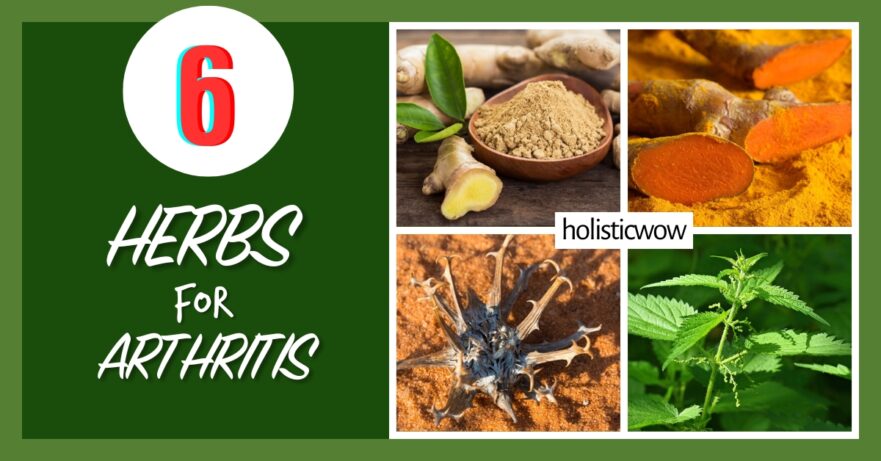In this article about herbs for arthritis relief:
🌿 Best Herbs for Arthritis | 📜 Herbal Preparations and Recipes for Arthritis Relief | ☯️ Integrating Herbs into Daily Life for Arthritis Relief | 🌱 Navigating Herbs Safely
Arthritis affects millions, causing joint pain, stiffness, and reduced mobility. This chronic condition can significantly impact daily activities and quality of life. Symptoms often worsen with age, making simple tasks challenging and uncomfortable.
Nature offers several herbs that can help manage arthritis symptoms. Ginger, turmeric, and willow bark are known for their anti-inflammatory properties. These herbs may reduce pain and swelling, potentially improving joint function and mobility for those with arthritis.
Understanding how to use these herbs effectively is crucial for maximizing their benefits. This guide will explore each herb’s properties, potential benefits, and safe usage methods to help you make informed decisions about incorporating them into your arthritis management plan.
Key Takeaways
- 🌿 Powerful Anti-inflammatory Herbs: Ginger and turmeric offer potent anti-inflammatory properties that may significantly reduce arthritis pain and inflammation.
- ✨ Natural Pain Relief: Willow bark contains compounds similar to aspirin, providing a natural alternative for arthritis pain management.
- 🫖 Herbal Tea Benefits: Regularly consuming specially formulated herbal teas can provide daily support for managing arthritis symptoms and improving overall joint health.
- 💚 Holistic Approach Importance: Combining herbal remedies with lifestyle modifications like anti-inflammatory diets and gentle exercise can enhance their effectiveness in managing arthritis.
🌿 Best Herbs for Arthritis
Arthritis is a common condition affecting millions worldwide, causing joint pain, stiffness, and inflammation. Nature offers several herbs that have been traditionally used to manage arthritis symptoms, including ginger (Zingiber officinale), turmeric (Curcuma longa), willow bark (Salix alba), meadowsweet (Filipendula ulmaria), devil’s claw (Harpagophytum procumbens), and nettle (Urtica dioica).
Arthritis is characterized by inflammation in one or more joints, leading to pain, swelling, and reduced mobility. The two most common types are osteoarthritis, caused by wear and tear on joints, and rheumatoid arthritis, an autoimmune condition.
Symptoms often include joint pain, stiffness (especially in the morning), swelling, and decreased range of motion. These symptoms can significantly impact daily activities and quality of life. While arthritis can affect people of all ages, it becomes more common as we age. Understanding these symptoms and their impact is the first step in exploring natural remedies to manage arthritis effectively.
Ginger (Zingiber officinale)
Ginger (Zingiber officinale) has been used for thousands of years in traditional medicine systems, particularly in Asia. It is well-known for its anti-inflammatory and antioxidant properties, supported by scientific research. Human studies have shown that ginger can help reduce pain and inflammation in arthritis patients [1] [2], with active compounds, including gingerols and shogaols, inhibiting key inflammatory pathways in the body. This inhibition can reduce joint pain and improve mobility for people with arthritis, though the degree of benefit may vary. Regular consumption of ginger, whether as a tea, supplement or in cooking, may help manage arthritis symptoms and improve the overall quality of life. However, while ginger is generally safe, high doses may increase the risk of bleeding, especially in individuals on blood-thinning medications, so it is important to consult with a healthcare provider.
Turmeric (Curcuma longa)
Turmeric (Curcuma longa) is a bright yellow spice used in Ayurvedic medicine for centuries. Its main active compound, curcumin, has demonstrated significant anti-inflammatory and antioxidant effects. Research has shown that turmeric can help reduce pain and inflammation in arthritis patients [3] [4]. Curcumin inhibits inflammatory cytokines and enzymes, including cyclooxygenase-2 (COX-2), the target of many anti-inflammatory drugs [5]. This can result in reduced joint pain, stiffness, and swelling. However, turmeric is poorly absorbed by the body, so it’s often recommended to take it with black pepper or as a supplement to increase its bioavailability.
Willow bark (Salix alba)
Willow bark (Salix alba) has been used for pain relief since ancient times. It contains salicin, which the body converts to salicylic acid—a compound chemically related to aspirin. Willow bark has proven anti-inflammatory and analgesic properties that can help reduce arthritis pain. Some studies have shown that willow bark can effectively treat lower back pain and osteoarthritis. However, the effectiveness of willow bark in reducing arthritis symptoms appears to be moderate, and it might not be sufficient as a stand-alone treatment [6]. Regular use of willow bark could help manage arthritis symptoms and reduce reliance on over-the-counter pain medications. However, like aspirin, willow bark may cause stomach upset in some people and should be used with caution by those with aspirin allergies.
Meadowsweet (Filipendula ulmaria)
Meadowsweet (Filipendula ulmaria) is a traditional European herb used for centuries to treat pain and inflammation. It contains salicylates, compounds related to those found in willow bark, which give it pain-relieving properties. Meadowsweet also has anti-inflammatory effects that can help reduce swelling in joints affected by arthritis. The herb works by inhibiting the production of pro-inflammatory compounds in the body. Although evidence from human studies is limited, regular use of meadowsweet as a tea or supplement may help manage arthritis pain and improve joint function. However, people who are sensitive to aspirin should use caution when taking meadowsweet due to its salicylate content.
Devil’s claw (Harpagophytum procumbens)
Devil’s claw (Harpagophytum procumbens) is a plant native to southern Africa used traditionally for pain relief and digestive issues. Its main active compounds, harpagoside and harpagide, have demonstrated anti-inflammatory effects. Studies suggest that Devil’s claw can effectively reduce pain and may improve mobility in people with osteoarthritis and lower back pain [7] [8]. These effects are likely due to its ability to inhibit the production of inflammatory mediators, although the exact mechanisms are still being studied. Regular use of Devil’s claw supplements might help manage arthritis symptoms and potentially reduce the need for conventional pain medications. However, Devil’s Claw may interact with certain medications, including blood thinners and diabetes drugs, so it’s important to consult a healthcare provider before use.
Nettle (Urtica dioica)
Nettle (Urtica dioica) is a common plant used medicinally for centuries. It’s rich in nutrients and compounds that give it anti-inflammatory properties. Some research suggests that nettle can help reduce inflammation and pain in arthritis patients. For instance, a randomized controlled trial demonstrated that applying stinging nettle leaf to areas affected by osteoarthritis, such as the base of the thumb or index finger, significantly reduced pain and disability compared to a placebo [9]. Regular consumption of nettle, either as a tea or supplement, might help manage arthritis symptoms and support overall joint health, although the evidence for long-term benefits is still emerging. Additionally, nettle’s high nutrient content, including vitamins and minerals, can support overall health. However, further studies are needed to confirm these potential benefits.
📜 Herbal Preparations and Recipes for Arthritis Relief
To address arthritis symptoms, we have developed specific herbal tea recipes that incorporate the beneficial properties of selected herbs. Each blend supports joint health, offering natural relief from pain and inflammation. These teas provide a soothing, effective herbal remedy for managing arthritis symptoms.
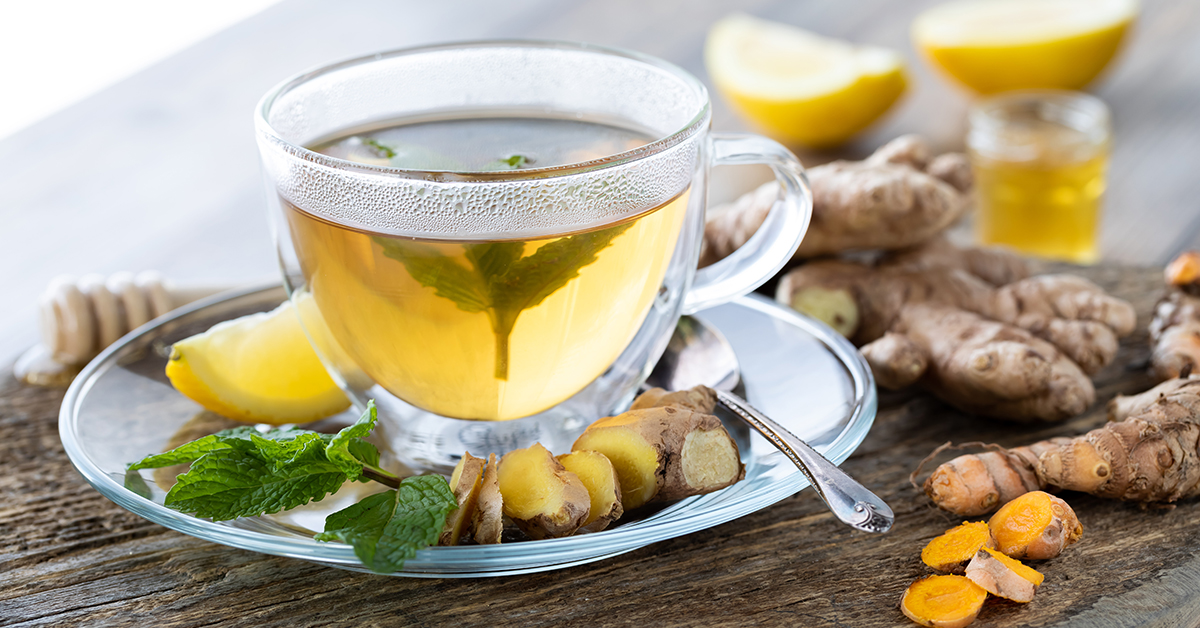
Soothing Ginger-Turmeric Tea
Ingredients:
- 1 teaspoon dried ginger root
- ½ teaspoon dried turmeric root
- ½ teaspoon dried nettle leaf
- 1 cup of boiling water
Preparation:
- Combine all dried herbs in a teapot.
- Add 1 cup of boiling water and steep for 10-15 minutes.
- Strain and drink once daily, preferably in the morning, to alleviate arthritis pain and inflammation.
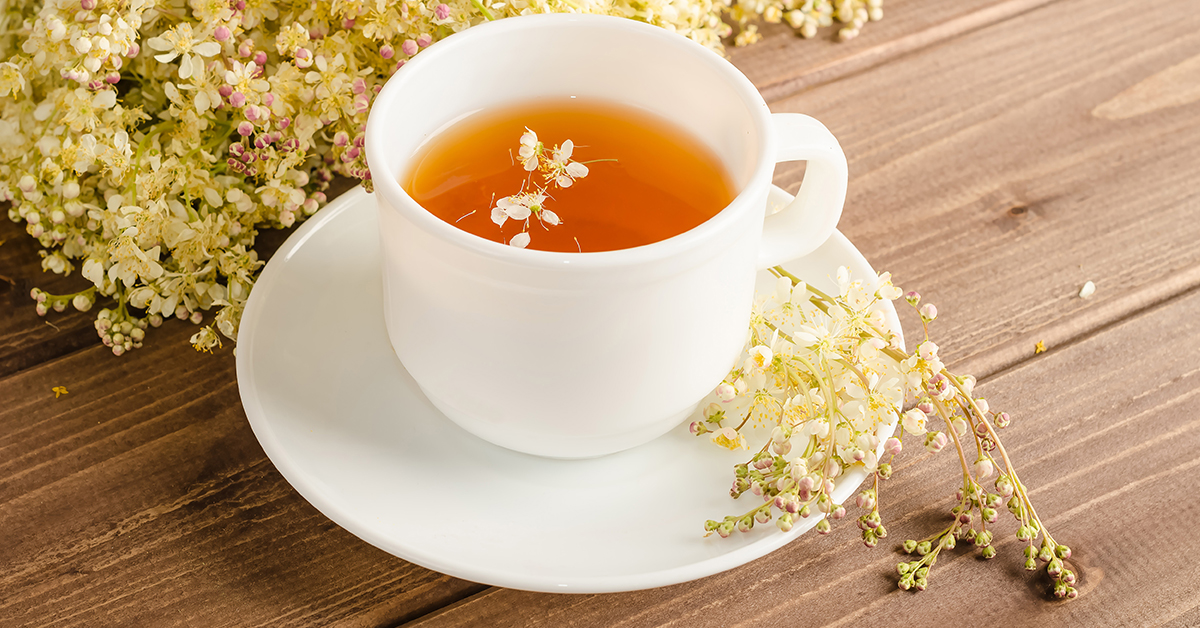
Willow Bark Blend
Ingredients:
- 1 teaspoon dried willow bark
- ½ teaspoon dried meadowsweet
- ½ teaspoon dried nettle leaf
- 1 cup of boiling water
Preparation:
- Mix the herbs in a teapot.
- Pour boiling water over the herbs and steep for about 10 minutes.
- Strain and drink twice daily, morning and night, to help manage arthritis pain and reduce inflammation.
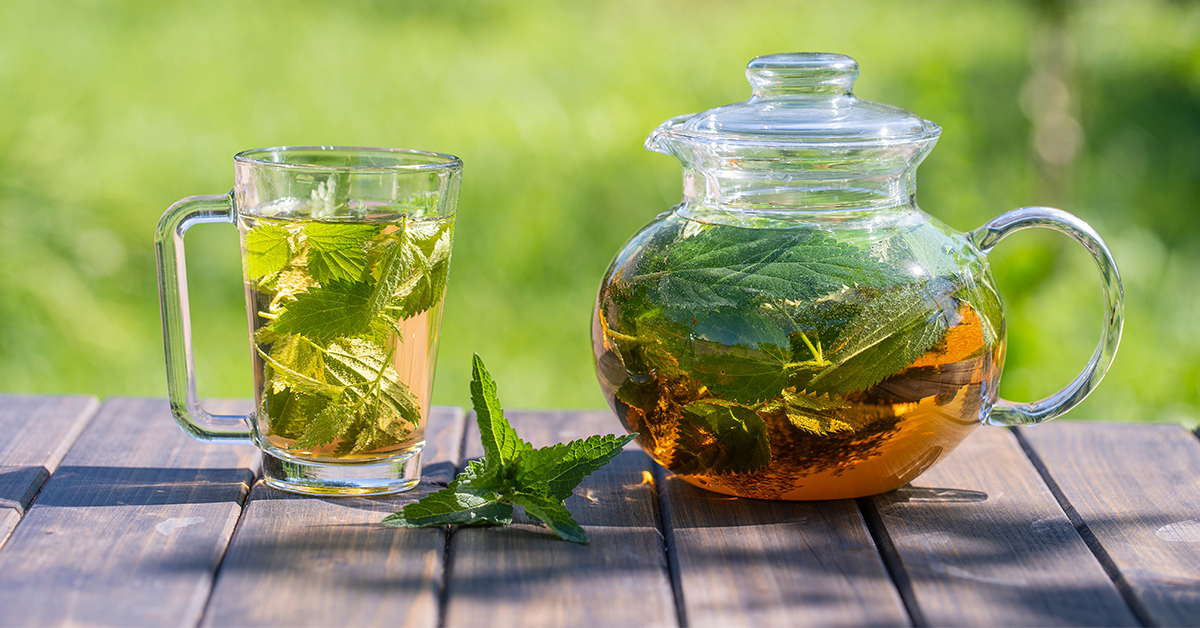
Anti-Inflammatory Herbal Infusion
Ingredients::
- 1 teaspoon dried devil’s claw root
- ½ teaspoon dried turmeric root
- ½ teaspoon dried ginger root
- ½ teaspoon dried nettle leaf
- 1 cup of boiling water
Preparation:
- Place all dried herbs in a teapot, add boiling water, and steep for 15 minutes.
- Strain and drink once daily to support joint health and reduce arthritis symptoms.

Joint Support Tea
Ingredients:
- 1 teaspoon dried willow bark
- ½ teaspoon dried devil’s claw root
- ½ teaspoon dried meadowsweet
- ½ teaspoon dried nettle leaf
- 1 cup of boiling water
Preparation:
- Combine herbs in a teapot, cover with boiling water, and steep for 10-15 minutes.
- Strain and drink in the morning or when experiencing joint pain to help manage arthritis symptoms.
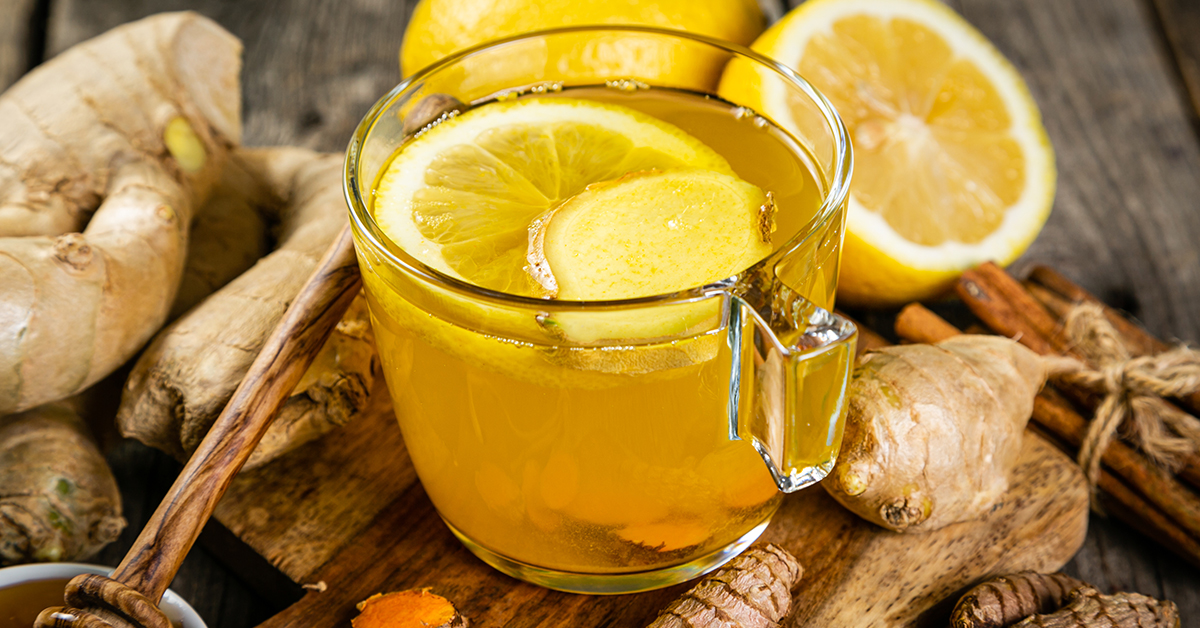
Powerful Arthritis Relief Blend
Ingredients:
- 1 teaspoon dried devil’s claw root
- ½ teaspoon dried willow bark
- ½ teaspoon dried turmeric root
- ½ teaspoon dried ginger root
- ½ teaspoon dried nettle leaf
- 1 cup of boiling water
Preparation:
- Add all dried herbs to a teapot, pour in boiling water, and steep for 15 minutes.
- Strain and drink once daily to provide comprehensive support for arthritis management.
These tea recipes are designed to be easily integrated into daily routines, providing a practical approach to managing arthritis symptoms naturally. Adjust the blends according to personal preference and consult a healthcare provider before starting any new herbal regimen, especially if you are taking other medications or have existing health conditions.
☯️ Integrating Herbs into Daily Life for Arthritis Relief
Incorporating herbs into your daily routine can help you effectively manage arthritis symptoms. Here are practical tips for using herbs and complementary practices to support joint health.
Daily Use and Lifestyle Integration
- 🫖 Herbal Teas: Start your day with a cup of Soothing Ginger-Turmeric Tea or Anti-Inflammatory Herbal Infusion. These teas may help reduce morning stiffness and set a positive tone for the day. Consider drinking the Joint Support Tea in the afternoon or evening to maintain relief throughout the day.
- 💚 Herbal Supplements: If you prefer not to drink herbal teas, consider taking herbs like turmeric, ginger, or devil’s claw in capsule or tincture form. These can be easily incorporated into your daily supplement routine.
- ✨ Topical Applications: Use ginger or cayenne pepper to create an herbal-infused oil and massage it into the affected joints. This may help provide localized relief and improve circulation to the area.
- 🫚 Culinary Uses: Incorporate anti-inflammatory herbs like turmeric and ginger into your cooking. Add them to soups, stews, or smoothies for an extra boost of joint-supporting compounds.
Additional Practices to Support Joint Health
- 🥦 Dietary Adjustments: Adopt an anti-inflammatory diet rich in omega-3 fatty acids, fruits, vegetables, and whole grains. Reduce consumption of processed foods, sugar, and saturated fats.
- 🏃♀️ Regular Exercise: Engage in low-impact exercises like swimming, cycling, or gentle yoga to improve joint flexibility and strength without putting excessive stress on your joints.
- 🧘♀️ Stress Management: Practice stress-reduction techniques such as meditation, deep breathing exercises, or progressive muscle relaxation. Stress can exacerbate arthritis symptoms, so managing it is crucial for overall joint health.
- ♨️ Hot and Cold Therapy: Apply heat to relax muscles and increase blood flow before activities. Use cold therapy after exercise or during flare-ups to reduce inflammation and pain.
- ⚖️ Maintain a Healthy Weight: Excess weight puts additional stress on weight-bearing joints. Maintaining a healthy weight can significantly reduce arthritis symptoms.
- 🫗 Stay Hydrated: Drink plenty of water throughout the day to support overall health and potentially benefit joint function.
Integrating these herbal remedies and supportive practices into your daily life can create a comprehensive approach to managing arthritis symptoms. Remember to start with small doses of herbs and gradually increase as needed. Monitor for any adverse reactions or interactions with other medications. It’s important to inform your healthcare provider about any herbal supplements you’re taking, especially if you have underlying health conditions or are taking medications.
🌱 Navigating Herbs Safely
Starting with small doses is the first step when adding herbal remedies to your health routine. This approach lets you see how you respond and adjust amounts for the best effect, keeping safety in mind. While many herbs are safe, everyone’s body reacts differently. If you notice any side effects, it’s important to stop and think about what might be causing them.
Remember, herbs can sometimes interact with prescription medicines. These interactions might make your medicines work too well or not well enough, which is why talking to a healthcare provider or an herbalist is essential. This is especially crucial if you’re pregnant, breastfeeding, taking medications regularly, or have an existing health condition. Getting advice tailored to your situation can help you avoid any unnecessary risks.
For kids and older adults, being extra careful with herbs is important. Their bodies might react more strongly to herbal remedies, and the chance of side effects or interactions could be greater. Before giving herbal treatments to children or elderly family members, getting advice from a professional is a must to ensure their safety.
By being cautious and seeking expert advice when needed, you can make herbal remedies a safe part of your wellness plan. This careful approach allows you to enjoy the benefits of herbs while keeping yourself and your family safe.
FAQ
How effective are herbal remedies in managing arthritis symptoms?
Herbal remedies can be beneficial in managing arthritis symptoms for some people. These natural treatments often work by reducing inflammation and pain in the joints. For example, ginger and turmeric have potent anti-inflammatory properties that can help alleviate arthritis pain and stiffness. Willow bark, which contains compounds similar to aspirin, may provide pain relief. Devil's claw has shown promise in reducing osteoarthritis pain and improving mobility. However, it's important to note that the effectiveness can vary from person to person. Some individuals may experience significant relief, while others might notice more subtle effects. It's also crucial to understand that herbal remedies typically work best as part of a comprehensive arthritis management plan that includes proper diet, exercise, and stress management. Always consult a healthcare provider before starting any new herbal treatment, especially if taking other medications.
Are there any potential side effects or interactions when using herbal remedies for arthritis?
While herbal remedies are generally considered safe, they can have potential side effects and interactions, just like any other treatment. For instance, ginger may increase the risk of bleeding in some people, especially those on blood-thinning medications. Willow bark, which contains salicin (similar to aspirin), can cause stomach upset and should be used cautiously by those with aspirin allergies. Devil's claw may interact with certain medications, including blood thinners and diabetes drugs. Some people might experience mild digestive issues when using turmeric or nettle. Additionally, the quality and potency of herbal products can vary widely, affecting their efficacy and potential for side effects. Some herbs may not be suitable for pregnant women or people with certain health conditions. This is why it's crucial to discuss the use of herbal remedies with a healthcare provider, especially if you have existing health conditions or are taking other medications.
How long does it typically take to see results when using herbal remedies for arthritis?
The time it takes to see results from herbal remedies for arthritis can vary significantly depending on several factors. These include the specific herb being used, the severity of arthritis symptoms, individual body chemistry, and whether the herbs are being used in conjunction with other treatments. Some people might notice mild improvements in their symptoms within a few days to a week of consistent use, particularly with herbs like ginger or turmeric. However, more significant effects often take longer to manifest. However, it may take several weeks of regular use for many herbal remedies to see noticeable benefits. For example, devil's claw typically requires 4-8 weeks of consistent use for noticeable effects. It's important to be patient and consistent when using herbal remedies. Unlike conventional medications that may provide immediate relief, herbs often work more gradually to reduce inflammation and support overall joint health. Keep in mind that while waiting for results, it's crucial to continue any prescribed treatments and to communicate with your healthcare provider about your use of herbal remedies and any changes in your symptoms.

